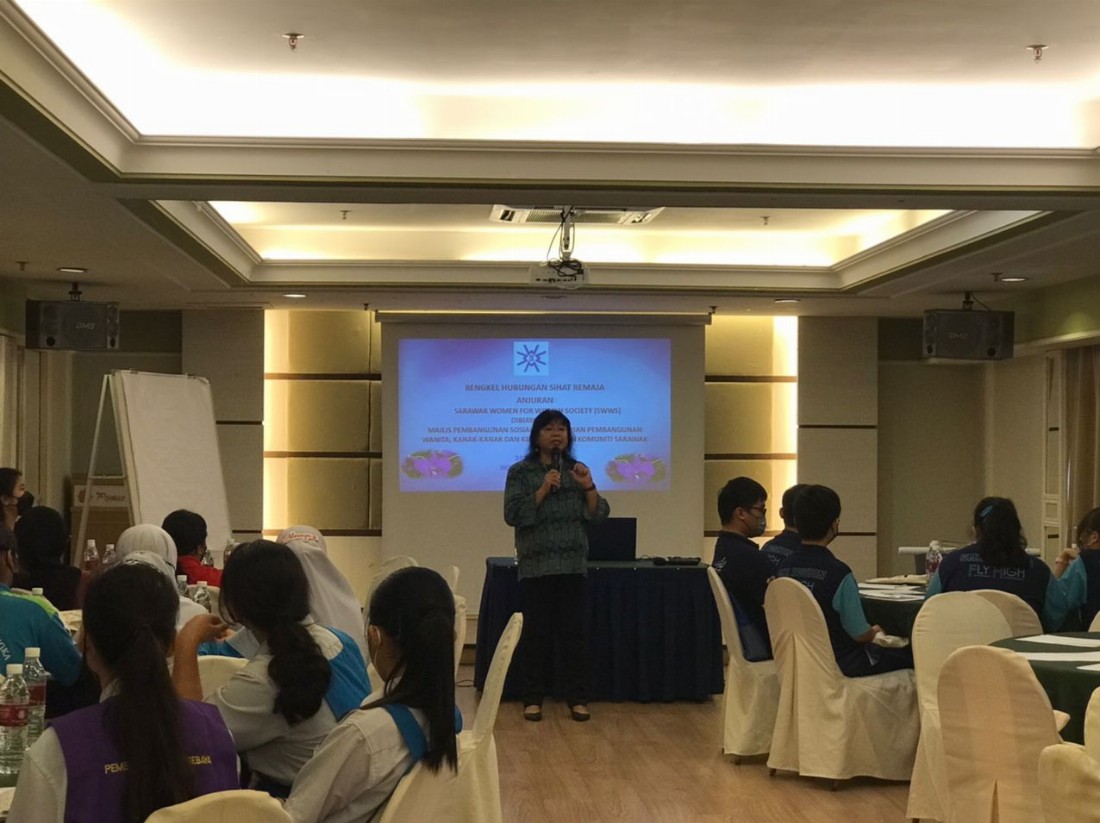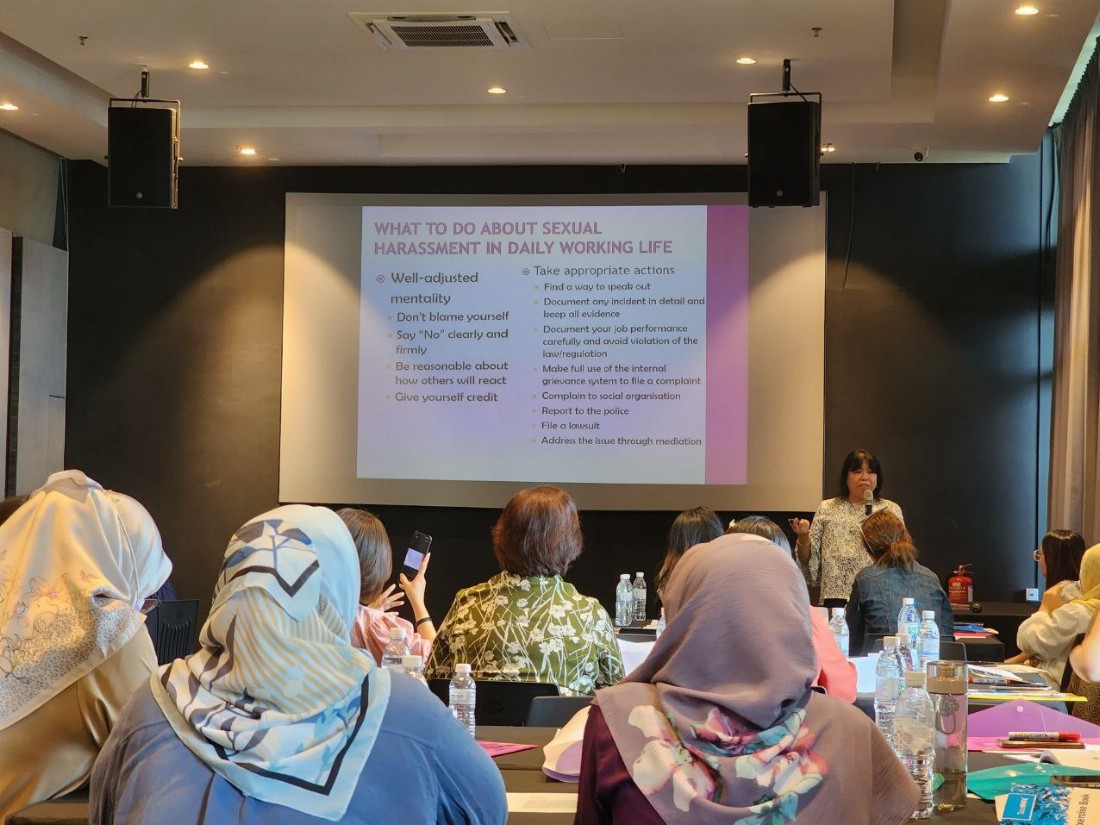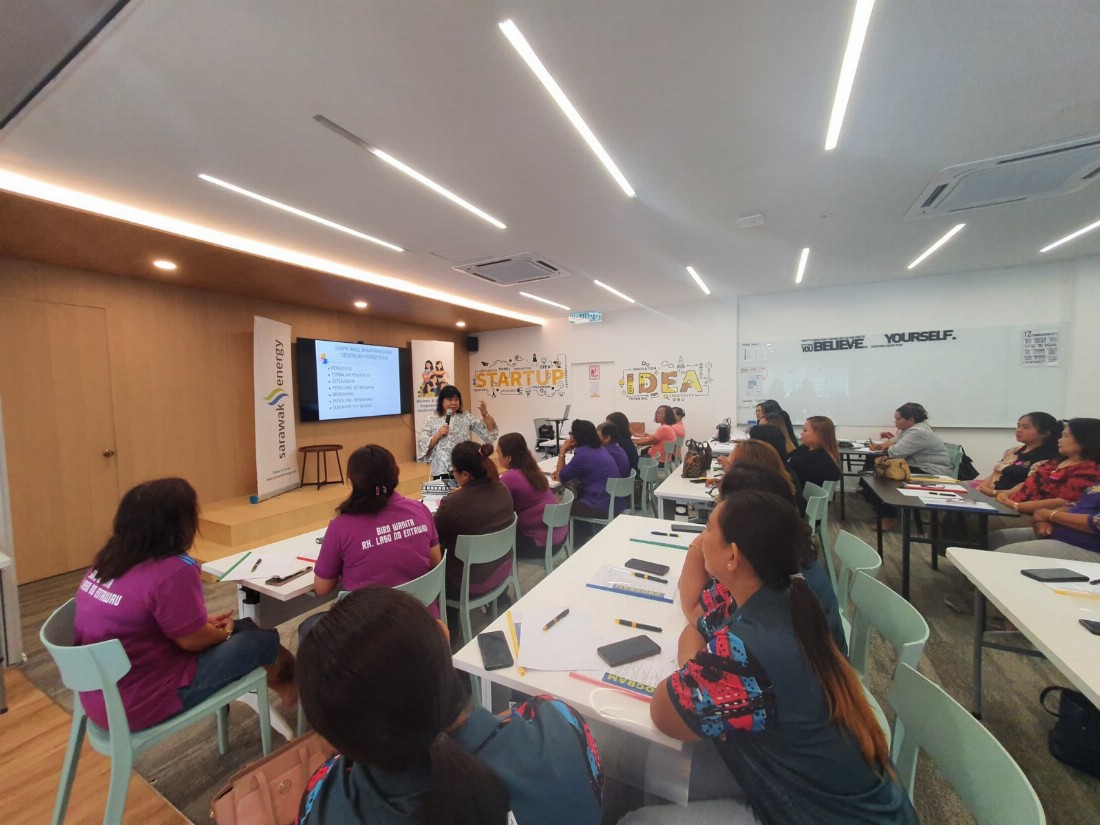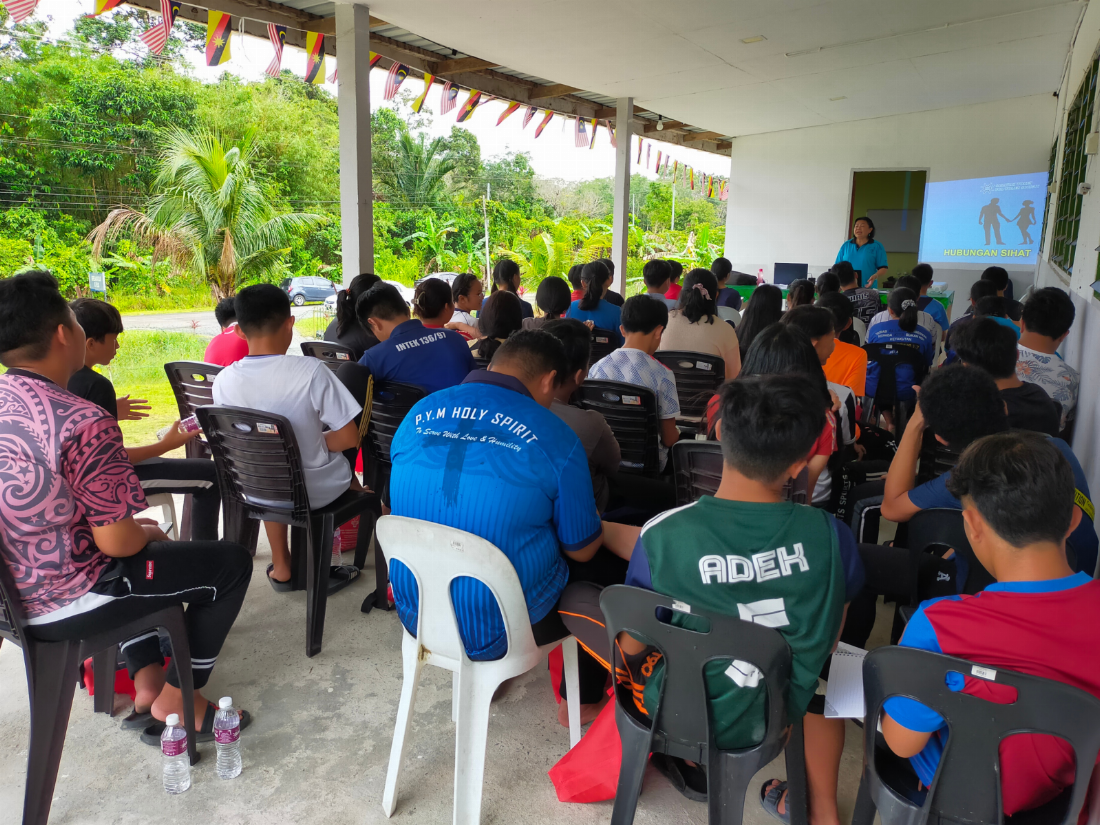malaysia -
Dr. Angie Garet

- Actor/Organisation
- Dr. Angie Garet / Sarawak Women for Women Society (SWWS)
- Current Title/Designation
- The President of SWWS since 2022
- Expertise/Focus Area
- in Assisting, Mediating Women for Gender Based Violence (GBV).
- Date of Interview/Research
- 19 September 2024
- Location of Interview
- UNIMAS
- Diplomacy Track
- 2
Starting Point
Dr. Angie Garet has served as the leader of SWWS since 2022. The Sarawak Women's Society for Women’s Services (SWWS) was officially registered in July 1985, following its formation in 1984 by a group of women in Kuching. The organization plays a pivotal role in assisting and mediating on behalf of women facing gender-based violence (GBV). Its core objectives are to: (1) achieve gender equality and eliminate discrimination, (2) educate women and girls about their rights, (3) advance the social position of women, and (4) raise awareness about the exploitation and abuse of women and girls across various contexts.
SWWS focuses on several key groups: (i) women and children affected by violence, particularly those in rural and underserved areas, (ii) educators and parents through training on child safety and abuse prevention, and (iii) the broader public through campaigns aimed at changing societal attitudes toward GBV. To this end, SWWS has established several key initiatives: (1) WINNE’s Safe Space, (2) the Women's Crisis Phone Line (CPL), (3) Para-Counselling and Legal Support, and (4) participation in the Joint Action Group (JAG).
Peace Journey
The Sarawak Women for Women Society (SWWS) primarily handles cases of gender-based violence (GBV), which account for 34.2% of their total cases (see Figure 1), surpassing other case types. SWWS works alongside the police, lawyers from the Sarawak Legal Department (Jabatan Guaman Sarawak), and volunteers to provide advisory support and intervene when perpetrators continue violent behaviour. When violence persists, legal action is sought through the Sarawak Legal Department. GBV remains a severe issue in Sarawak, with 5,507 reported domestic violence cases in 2023, a slight decrease of 1,033 from 2022. However, the Minister for Women, Family, and Community Development suggests this decline reflects underreporting, as victims often consider GBV a private matter, particularly when the abusers are intimate partners. Many women and children experience severe physical and mental abuse, with some Muslim women facing additional challenges due to the complexities of Syariah law. SWWS collaborates with Jabatan Guaman Sarawak to assist women seeking divorce when their spouses refuse, perpetuating the cycle of abuse.
The Women’s Crisis Phone Line (CPL) and para-counselling and legal support initiatives from SWWS have proven effective in offering immediate help to victims.
Established in 1988, CPL provides confidential support to women facing domestic or sexual violence. This non-political, multi-racial service, operated by volunteers, offers emotional support, helps women explore their options, and empowers them to pursue legal action and find safe spaces. Volunteers often accompany survivors to police stations or legal aid offices and ensure they understand their rights and available recourses.
Furthermore, while waiting for legal proceedings, SWWS offers temporary shelters to victims. WINNE’s Safe Space provides shelter for women and children, allowing them to escape abusive environments and set personal goals to break the cycle of violence. The shelter offers educational, social, and recreational activities aimed at restoring survivors’ security, dignity, and self-worth. By providing a safe environment, SWWS empowers survivors to regain control over their lives and move towards independence.
Success Stories
The Sarawak Women for Women Society (SWWS) has played a pivotal role in mainstreaming gender-based violence (GBV) issues through advocacy and policy reform efforts. The organization has worked tirelessly to bring these issues to the forefront, successfully influencing policies to better address GBV. The intervention processes employed by the SWWS members to mitigate the GBV faced by women and children:
- Awareness Campaigns: Initiatives such as the #Bukansalahkamek campaign, which aimed to combat victim-blaming in GBV cases, have raised public consciousness about the issue.
- Workshops and Training: Programs like "Child Personal Safety" workshops and rural outreach initiatives have been instrumental in educating communities on abuse prevention and protection strategies.
- Support Services: SWWS has been actively involved in establishing one-stop crisis centers in hospitals, offering critical services for survivors of domestic violence and rape.
- Collaboration with Hospitals: The society played a key role in the establishment of one-stop crisis centers (OSCCs) at Sarawak General Hospital, ensuring integrated support for survivors of rape and domestic violence.
- Advocacy: SWWS has been a staunch advocate for stronger legal protections against stalking and other forms of violence, while also pushing for legal reforms to promote gender equality in Malaysia.
- Domestic Violence Act (1994): The organization actively lobbied for the Domestic Violence Act, which was implemented in 1996, and has supported subsequent amendments aimed at strengthening protections for women and children. By engaging in these initiatives, SWWS has contributed significantly to the ongoing fight against GBV in Malaysia.
- In 2023, SWWS received 111 cases, conducted 100 follow-up sessions, and extended support to 270 survivors of gender-based violence and abuse.
- Finally, SWWS plays an integral role in the Joint Action Group for Gender Equality (JAG), a coalition of NGOs dedicated to advocating for gender equality and women's rights. Through JAG, SWWS actively contributes to national policy discussions and advocates for reforms aimed at protecting women from violence.
A recent development is the practice of involving children in decision-making through the Child Council: in May 2024, the Kuching City South Council (MBKS) announced the creation of a Child Council, reflecting its dedication to the Child-Friendly Cities Initiative (CFCI). This initiative, in collaboration with UNICEF Malaysia, follows the signing of the CFCI memorandum of understanding (MoU) in October 2022. The Child Council will engage children aged 11 to 17 in shaping policies and projects that affect their lives. As Kuching aims to become a child-friendly city, it is essential to include the voices of its younger residents. Establishing the Child Council marks, a significant advancement in incorporating children’s perspectives into the decision-making process. Their contributions will be essential in creating a safe, inclusive, and supportive environment for all children in Kuching. This initiative offers young people a platform to express their views, engage with their community, and cultivate leadership skills. Listed below are the types of cases the SWWS was involved in during 2023 (SWWS 2023 Report).
-
Implementing AgencyAWPR Malaysia
-
Lead ResearcherAssoc. Prof. Dr. Ayesah Uy Abubakar
-
Co-Researcher/Research Assistant(s)Dato' Prof. Azizan Baharuddin (UM)/Dr. Noorul Hafidzah Zawawi
-
Local ResearcherAssoc. Prof. Dr. Suraya Sintang (UMS), Assoc. Prof. Dr. Lucy Sebli Seidelson (UNIMAS), Dr. Zaireeni Azmi (USM)
-
Date ResearchJune 2024-January 2025








